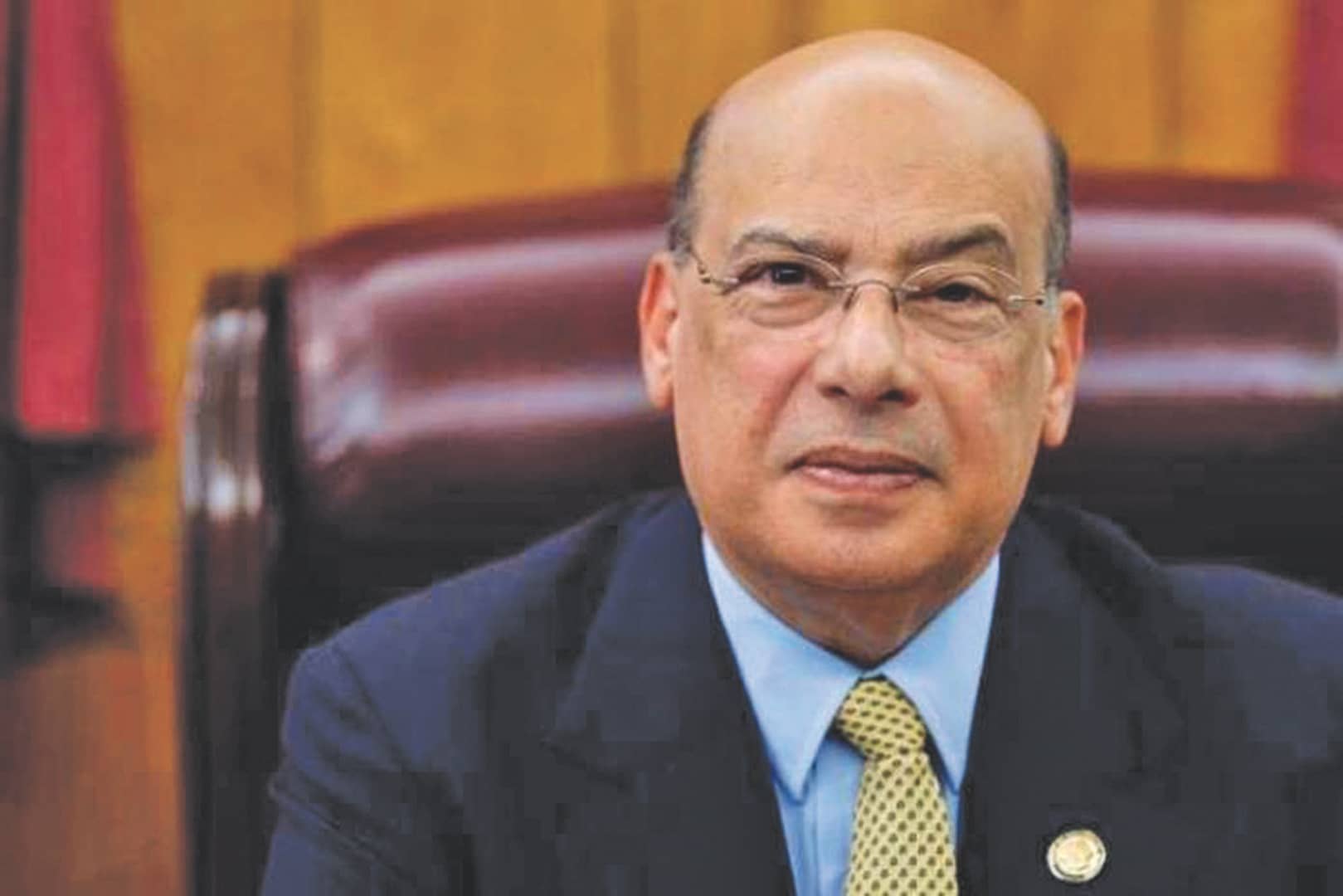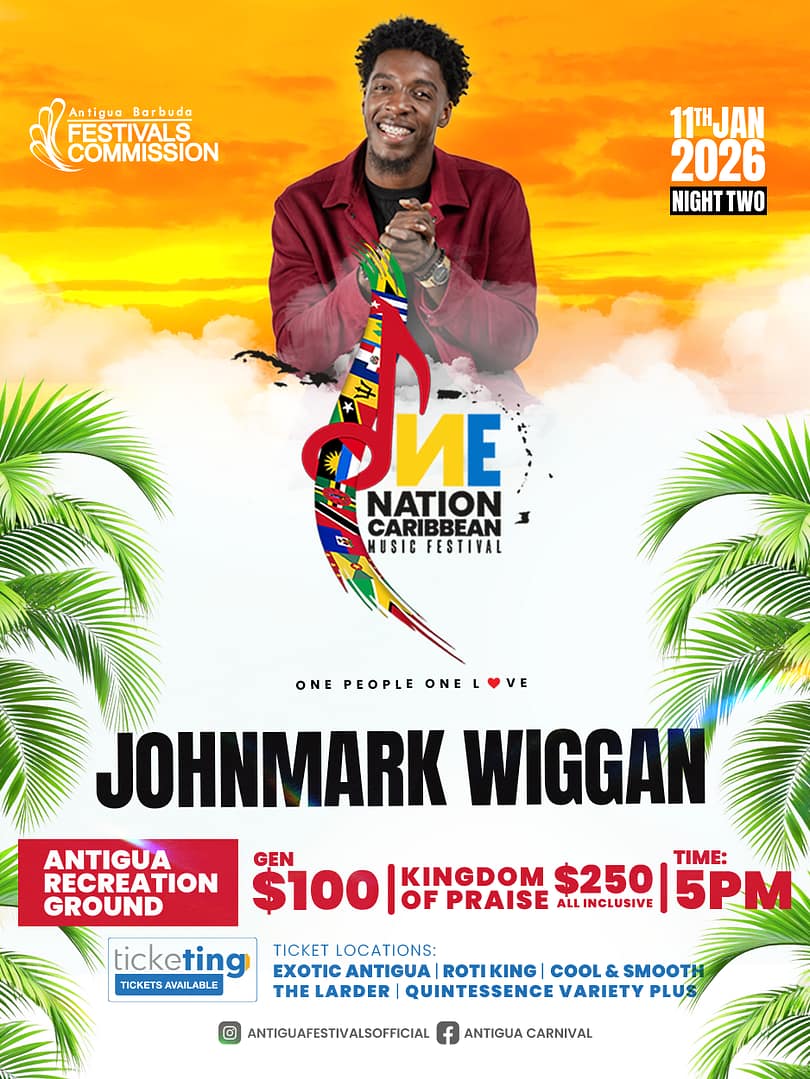
By Sir Ronald Sanders
(The writer is Ambassador of Antigua and Barbuda to the United States and the Organization of American States. He is also a Senior Fellow at the Institute of Commonwealth Studies at the University of London and at Massey College in the University of Toronto. The views expressed are entirely his own)
A debate has now started in parts of the Caribbean about whether there should be term limits for Prime Ministers. The debate arises from the view that longevity in office leads to abuse and to the suppression of challengers both within political parties specifically, and the political system more generally.
Partly responsible for this is that, increasingly, election campaigns highlight the party leader as if he/she is running for office independently of the political party. But, while the appeal of a leader of a political party could be a deciding factor in whether a party wins an election or not, that leader’s election alone does not deliver government or the Prime Ministership. The party’s representatives must win the majority of electoral areas or constituencies in order for the party’s leader to become Prime Minister and to form a government.
Further, if in the course of its governing a country, the ruling party, within its own system, chooses a new leader who is a member of parliament, that new leader becomes the Prime Minister. Even if the incumbent holder of the office wanted to remain Prime Minister, he/she could not do so once the majority of elected parliamentary representatives withdraw their support in favour of someone else.
Also, if the majority of members of parliament, from the governing and opposition parties, express, by a vote, a lack of confidence in the Prime Minister, he/she could not remain in office. There would be two options: either to resign as Prime Minister and hand over to an elected representative favoured by the majority in parliament, or to dissolve the parliament and call general elections. Either way, that specific term of office as Prime Minister would end.
A third way in which Prime Ministers could be removed from office is by the will of the people at general elections. If the majority of the electorate do not support the political party in office and choose another party, the term of the incumbent Prime Minister ends automatically, and the leader of the newly elected party becomes the new Prime Minister.
Given these various ways in which the holder of the office of Prime Minister can be removed, is there really any need to impose term limits? The terms of office of persons, who have served as Prime Ministers in the Caribbean, and in the United Kingdom of Great Britain and Northern Ireland (UK) where the system originated, have been terminated by one of the means described above. Outside the Caribbean, very few Prime Ministers have been allowed to serve beyond three terms. In the most notable cases in the UK, Conservative Party leader, Margaret Thatcher, was forced to resign three years into her third term, and Labour Party leader, Tony Blair, was eased out two years into his third term.
Only strong and popular leaders of Caribbean political parties have managed to retain conclusive leadership of their parties for more than two terms. This is spectacularly so in the case of Prime Minister Keith Mitchell of Grenada who served three terms from 1995 to 2008 and came back to be elected in 2013 for two more terms. He is currently a year into his fifth term. Dr Ralph Gonsalves of St Vincent and the Grenadines is another example of how the office of Prime Minister can be retained as a result of political party control. He is currently serving his eighteenth year continuously in office, and his fourth term as Prime Minister, as a result of his party winning four consecutive general elections since 2001.
Two things should be noted here. First, in the case of Guyana which is a Republic with an executive President, a parliamentary amendment to the Constitution in 2000, limited the holder of the office of President to two terms. Also, in Guyana, the President is elected directly by the people from a slate of candidates put up by political parties. This is the most direct form of election of a head of government. As explained above, there is no direct election of the Prime Minister in Caribbean countries
Second, there is no valid comparison between the way in which a person becomes Prime Minister in a Caribbean country and the manner in which the President of the United States (U.S.) is chosen. Contrary to popular belief, the President of the U.S. is not directly elected by the people; rather, the electorate cast ballots for members of the U.S. Electoral College (proportionate representatives of each state), who, in turn, cast direct votes for candidates for the Presidency. That is how, for instance, Donald Trump was elected President even though his opponent, Hilary Clinton, polled more votes nationally than he did.
The 22nd amendment of the U.S. constitution specifically limits a person serving as President to two elected four-year terms. The utility of this limitation is being questioned now by President Donald Trump as it was, in the past, by other holders of the office, including Richard Nixon and Ronald Reagan. In 1986, Reagan famously said in a Washington Post interview: “I have come to the conclusion that the 22nd Amendment was a mistake. Shouldn’t the people have the right to vote for someone as many times as they want to vote for him? They send senators up there for 30 or 40 years, congressmen the same”.
Given all this, it is difficult to see how a prohibition could be placed on the number of terms a person could serve as Prime Minister unless the parliaments of Caribbean countries amended their constitutions to state explicitly that “no person shall serve in the office of Prime Minister for more than two consecutive terms”. That is most unlikely to happen, and in any event, it appears unnecessary, given the constitutional ways in which a Prime Minister may now be removed from office. Term limits have been set by the electorate, simply by voting out unpopular parties and their leaders.
The best safeguards against abuse of office by Prime Ministers are the will of the people at general election, and the good sense of the holders of the office who should resolve to remain legitimately in it only for as long as it’s clear that the people want them.
Responses and previous commentaries: www.sirronaldsanders.com
Advertise with the mоѕt vіѕіtеd nеwѕ ѕіtе іn Antigua!
We offer fully customizable and flexible digital marketing packages.
Contact us at [email protected]


















Well said
Notes From A Native Son Of The Rock! “That famous dictatorship, whose supporters believe that it is called for by the historical process and consider it an indispensable prelude to the dawn of independence, in fact symbolizes the decision of the bourgeois caste to govern the underdeveloped country first with the help of the people, but soon against them.” ― Frantz Fanon, The Wretched of the Earth!
The Antigua and Barbuda constitution is legislation, case law, and convention! Ultimately, the Constitution and core convention is that whoever controls Parliament holds power!
Quit all this dissonance and bamboozling and get on with molding a Nation and building a Caribbean Civilization!
“Nuff Said” Mi Gud Fren!
“To educate the masses politically does not mean, cannot mean, making a political speech. What it means is to try, relentlessly and passionately, to teach the masses that everything depends on them; that if we stagnate it is their responsibility, and that if we go forward it is due to them too, that there is no such thing as a demiurge, that there is no famous man who will take the responsibility for everything, but that the demiurge is the people themselves and the magic hands are finally only the hands of the people.” ― Frantz Fanon, The Wretched of the Earth!
Well written, Sir Ron, but you are overlooking one crucial bit of information. In the Caribbean there are no checks and balances on the power and authority of the Prime Minister, and, as highlighted in the recent Investigative Report from Al Jazeera, they use the resources of the state to enrich themselves, and to entrench their power. They also use their control of the state apparatus to ensure that they are not held accountable for corrupt deeds. The list in Antigua is long, but to name a few: Space Research; Sovereign Order of Oregon; Asian Village; Guns to Colombia, IHI; Royal Antiguan (loan from Brazil); Airport Resurfacing; YIDA and more recently the Odebrecht bribe.
If there are term limits, and the leaders recognise that they are likely to be investigated and prosecuted, upon leaving office, they will be less inclined to abuse their authority and the resources of the state for personal gain. Rather, they would focus on SERVING the country, and creating a lasting legacy.
Lets take IHI, Royal Antiguan loan, was the labor party not removed from office in 2004? What happened with the issues you listed? Recall the PM during those years having to pay compensation to LB for defamation which included false allegations he made regarding IHI. The judge (Remy) made clear that BS was motivated by malice when he made those false statements and hence had to pay. Crusader Radio also had to pay. As far as for the claimed Odebrecht bribe, the ambassador who received the funds, he claimed for a legitimate project, sent back the funds. He was still removed from office
Wait this clown doing what
We don’t need term limits, there is already a mechanism for removing a corrupt Prime Mister (Motion of No Confidence) and there is a mechanism to remove corrupt parties (General Election). Plus a party may not be able to produce a prime minister every 10 Years because not every minister may be interested or suitable as a Prime Minister.
Comments are closed.